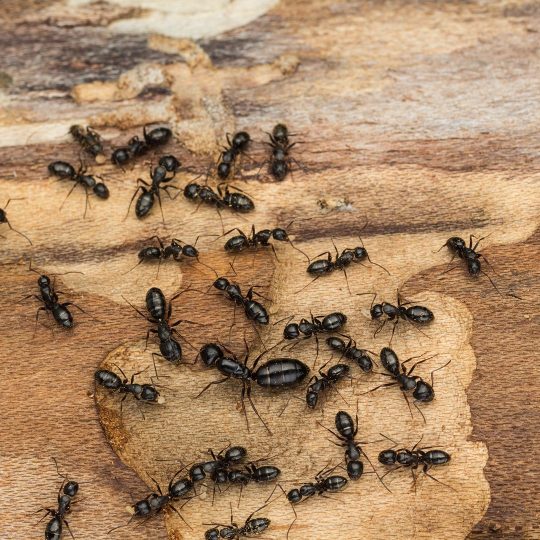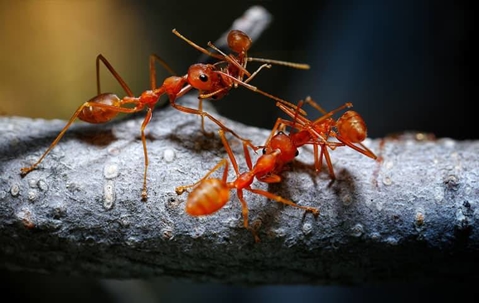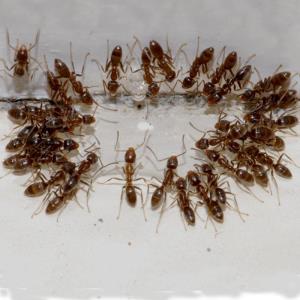Efficient Ant Control: Professional Services to Eliminate Ant Infestations
Environmental Impact of Pest Control: Balancing Performance With Sustainability
The ecological effect of pest control is an important issue that needs a delicate balance in between attaining effectiveness in taking care of parasites and guaranteeing sustainability of our environments. As we make every effort to secure our crops, homes, and health and wellness from the dangers posed by insects, the methods we use can unintentionally hurt the atmosphere. From making use of dangerous chemicals that seep right into our dirt and water to the unintentional repercussions on non-target varieties, the consequences of standard bug control methods are far-ranging. Nevertheless, there are arising techniques that offer wish for an extra sustainable approach to pest management. These services not only goal to address the immediate bug troubles however also consider the lasting health and wellness of our earth.
Damaging Chemicals in Pest Control
The utilization of harmful chemicals in pest control postures substantial ecological and health threats that necessitate cautious factor to consider and reduction strategies. Herbicides, pesticides, and pesticides are generally utilized to eliminate bugs, but their prevalent application can cause unplanned repercussions. These chemicals can infect soil, water resources, and the air, impacting not only the targeted parasites yet additionally useful pests, wild animals, and human beings.

To attend to these risks, integrated bug management (IPM) methods are being promoted as a much more sustainable alternative. IPM includes a mix of methods such as biological control, environment control, and the targeted usage of chemicals as a last option (ant control forest nc). By embracing an alternative approach to pest control, we can decrease the ecological and health influences connected with hazardous chemicals while properly handling pest populaces
Effect On Non-Target Variety
Taking into consideration the unplanned effects of pest control approaches, the effect on non-target species is a critical aspect that calls for comprehensive analysis. While parasite control steps aim to target details pests, other microorganisms in the ecological community may be unintentionally influenced. Non-target varieties, including useful insects, birds, mammals, and even plants, can suffer indirect or straight harm from chemical applications or organic control approaches.
Pesticides made to battle a particular bug bug may damage pollinators like bees or all-natural killers such as ladybugs. Biological control representatives, if not species-specific, can position dangers to unintended targets, interrupting the eco-friendly balance.
To mitigate the effect on non-target types, integrated parasite monitoring (IPM) approaches that highlight a holistic method to pest control are recommended. These approaches focus on the use of eco-friendly methods, reducing injury to beneficial microorganisms while effectively taking care of pest populations. Carrying out extensive risk assessments and checking the outcomes of insect control initiatives are necessary action in guarding non-target types and advertising general community wellness.
Soil and Water Contamination
Unintended ecological repercussions of insect control methods expand past impacting non-target types, with significant effects for dirt and water contamination. Pesticides, herbicides, and chemical plant foods used in bug control can leach into the dirt and contaminate groundwater, posturing a threat to both water and earthbound environments. Soil contamination can disrupt the balance of bacteria vital for vitamins and mineral biking and plant development, leading to decreased soil fertility and productivity. These chemicals can persist in the environment for extensive durations, accumulating in the dirt and potentially entering the food chain.
Water contamination is one more crucial issue connected with bug control practices. Overflow from farming areas treated with chemicals can lug these chemicals right into neighboring water bodies, affecting aquatic organisms and water quality. Impurities in water sources can have far-ranging effects, influencing not only marine life however also human wellness with the intake of contaminated water or water microorganisms. To mitigate soil and water contamination from insect control tasks, incorporated pest management strategies that focus on sustainability and reduce chemical inputs are critical.
Air Contamination From Chemical Usage
Exposure to airborne pesticides throughout farming applications positions a significant problem for air contamination control procedures. In addition, pesticide drift, where pesticides are lugged by the wind to unintentional locations, can lead to the contamination of nearby ecological communities and water bodies.

Techniques for Lasting Bug Control
In the world of farming techniques, applying sustainable bug control strategies is paramount for maintaining ecological balance and guarding crop yields. Lasting insect control emphasizes making use of eco-friendly approaches to manage bug populations properly while decreasing harm to non-target microorganisms and ecosystems. Integrated Bug Management (IPM) is an extensively adopted strategy that combines biological, social, physical, and chemical control methods to accomplish long-term bug monitoring services.
One secret technique in lasting pest control is promoting biodiversity within agroecosystems. By improving all-natural enemies of bugs, such as parasitoids and predators, farmers can reduce the requirement for synthetic pesticides. Plant rotation and diversification are likewise reliable methods to interfere with pest life cycles and produce less positive conditions for pests to thrive. In addition, making use of pest-resistant crop varieties and employing methods like trap cropping can help in reducing insect pressure without relying greatly on chemical interventions. Eventually, by integrating these sustainable bug control strategies, farmers can achieve an equilibrium in between pest monitoring performance and environmental stewardship.
Conclusion
Finally, the environmental impact of insect control methods must be thoroughly thought about to balance effectiveness with sustainability. go to these guys Damaging chemicals made use of in parasite control can bring about soil and water contamination, air contamination, and harm non-target varieties - ant control services. It is vital to execute lasting parasite control strategies to lessen these negative impacts on the setting and advertise a much healthier environment for future generations
By adopting a holistic technique to pest control, we can decrease the ecological and health impacts connected with dangerous chemicals while effectively handling pest populations.

To alleviate the air pollution caused by pesticide usage, it is necessary to embrace integrated pest administration methods that prioritize the usage of non-chemical bug control techniques, such as plant turning, natural killers, and resistant crop ranges. Lasting parasite control emphasizes the use of environmentally friendly techniques to manage parasite populations efficiently while minimizing damage to non-target organisms and environments. Integrated Bug Monitoring (IPM) is an extensively adopted approach that incorporates organic, cultural, physical, and chemical control techniques to accomplish long-lasting pest administration services.